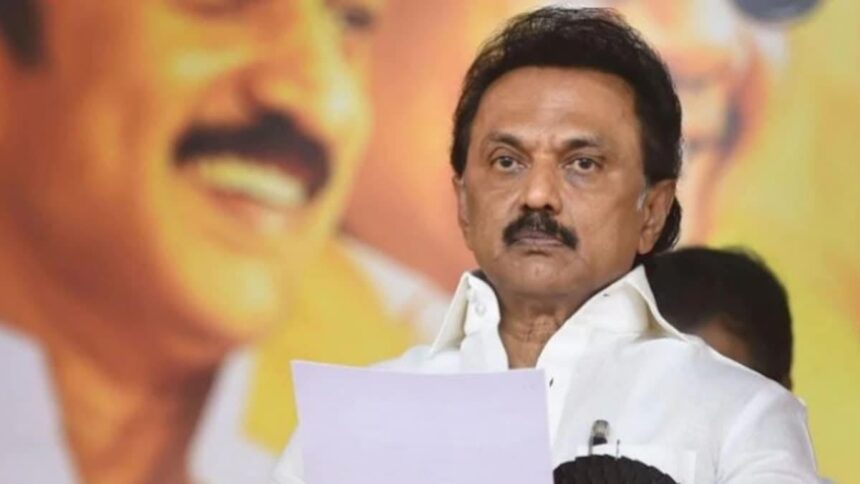The Dravida Munnetra Kazhagam (DMK), Tamil Nadu’s ruling party, has moved the Supreme Court against the Election Commission of India’s decision to conduct a Special Intensive Revision (SIR) of electoral rolls in the state, calling it an act of “constitutional overreach” that could result in large-scale disenfranchisement.
The petition, filed under Article 32 of the Constitution, contests the ECI’s orders dated June 24 and October 27, 2025, arguing that by introducing documentation requirements similar to a citizenship test, the SIR effectively turns the Election Commission into a “de facto National Register of Citizens (NRC).”
ECI announced the second phase of the Special Intensive Revision in 12 states and Union Territories, including Tamil Nadu.
According to the petition, a Special Summary Revision (SSR) of electoral rolls had already been conducted in Tamil Nadu between October 2024 and January 6, 2025. During this exercise, the rolls were updated to reflect deaths, migration, and deletions, and the revised roll was published on January 6, 2025, with provisions for continuous updating thereafter.
Despite this, the ECI ordered a fresh revision in October 2025 under its powers from Article 324 and Section 21 of the Representation of the People Act (ROPA), 1950. The DMK argues that the Commission’s new guidelines impose citizenship verification requirements that particularly target those missing from the 2003 rolls.
The petition asserts that this move exceeds the ECI’s constitutional mandate, as the power to assess citizenship lies exclusively with the Union Government under the Citizenship Act, 1955.
It further argues that the procedure for such verification is not mentioned in the ROPA, 1951, or the Registration of Electors Rules, 1960. The DMK has also pointed out that Section 28(3) of the RPA requires prior notification and parliamentary oversight of all new rules, neither of which occurred in this case.
The DMK contends that by requiring only a limited set of thirteen documents as proof of citizenship, initially excluding Aadhaar and omitting common identity proofs such as ration cards, PAN cards, and voter IDs—the ECI’s decision forces existing voters to “re-prove their citizenship.”
The petition warns that Electoral Registration Officers (EROs) have been empowered to refer “suspected foreign nationals” to authorities under the Citizenship Act, thereby bypassing due process.
The party also highlights several procedural lapses in the SIR, such as the use of forms not provided for under existing electoral laws, automatic deletions of voters who fail to submit documents, and excessive discretionary powers given to Booth Level Officers (BLOs), who can mark voters as “absent,” “shifted,” or “duplicate” based on neighbour inquiries.
The entire process, which is to be completed by February 7, 2026, they said, falls during the monsoon and festival seasons, making compliance difficult.
The appeal period from December 9, 2025, to January 31, 2026, overlaps with this schedule, which, the DMK claims, renders the redress process ineffective.
According to the DMK, these measures will inevitably create confusion and uncertainty among voters and could lead to large-scale disenfranchisement, as seen in Bihar, where a similar exercise was undertaken.
The party argues that the SIR violates Articles 10, 14, 19, 21, and 326 of the Constitution by undermining the right to vote, equality, and dignity.
It further asserts that the ECI’s unilateral action disrupts the federal balance by imposing a centrally driven exercise on Tamil Nadu without consultation.
The petition warns that the burden of producing documents will disproportionately affect the poor, women, youth, migrants, and other marginalized groups who are least likely to possess the prescribed proofs.
The DMK has requested the Supreme Court to quash the ECI’s orders dated June 24 and October 27, 2025, and to declare the Special Intensive Revision unconstitutional, arbitrary, and without statutory authority.
This comes after Tamil Nadu Chief Minister M.K. Stalin declared, “We will resist disenfranchisement and defeat #VoteTheft,” accusing the ECI of a “hasty and opaque” SIR that risks robbing citizens of their rights and vowing that Tamil Nadu will fight any attempt to undermine the right to vote.
Earlier in July, Stalin warned that the Special Intensive Revision (SIR) is being misused to quietly erase voters from disadvantaged and dissenting communities and tilt the balance in favour of the BJP, saying that “if you cannot defeat us, you seek to delete us” and vowing that Tamil Nadu will resist any threat to democracy.”
On Sunday, Tamilaga Vettri Kazhagam (TVK) president Vijay, while strongly opposing the Special Intensive Revision (SIR), accused the ruling DMK of attempting to “use the revision for electoral gains” and urging all opposition parties to “set aside political differences and unite to defend the people’s democratic rights.”
Citing the Kerala Assembly’s resolution against the SIR, he questioned why the DMK government, which claims to oppose the move, has not passed a similar resolution in Tamil Nadu, further accusing it of hypocrisy for remaining silent earlier and now “pretending to be the sole protector of democracy.”
The post DMK moves SC against SIR, calls it “de facto NRC,” “constitutional overreach” appeared first on Maktoob media.










